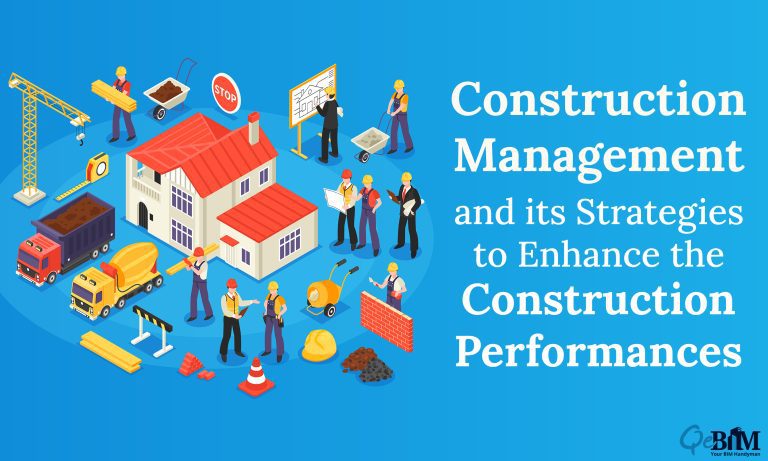Construction Management and its Strategies to Enhance the Construction Performances

Construction projects require efficient management strategies to ensure optimal performance and productivity. The construction industry is known for its complex and time-sensitive nature, making it crucial to implement effective strategies that streamline processes, improve communication, and enhance overall project outcomes. In this article, we will explore some key construction management strategies that can significantly boost the performance and productivity of any construction project.
1) Project Planning and Scheduling: Intense project planning and scheduling are mandatory to achieve success in construction management. Before commencing any work, a detailed plan should be developed, outlining project objectives, timelines, milestones, and resource allocation. By creating a well-defined project schedule, construction teams can clearly understand the tasks and deadlines, allowing them to manage resources efficiently and mitigate potential delays.
2) Lean Construction Principles: Implementing lean construction principles can optimize project performance and productivity. This approach focuses on minimizing waste, maximizing value, and enhancing collaboration among project teams. Lean construction techniques such as just-in-time delivery, continuous improvement, and standardized processes can eliminate unnecessary steps, reduce delays, and improve overall project efficiency.
3) Effective Communication: Strong communication channels are crucial in construction management. Regular and transparent communication among project teams, stakeholders, and subcontractors is essential for maintaining alignment, resolving issues promptly, and preventing costly errors. Utilizing digital tools, such as project management software and cloud-based collaboration platforms, can facilitate real-time communication and document sharing, ensuring everyone has access to the latest information.
4) Building Information Modeling (BIM): BIM is a computerized illustration of a construction project’s physical as well as functional characteristics. It allows all the AEC professionals and team members to collaborate, share and communicate the project data efficiently. BIM can improve productivity by reducing errors, minimizing rework, and enhancing coordination among different trades. BIM Outsourcing Services lets stakeholders visualize the project in a virtual environment, identify clashes, and resolve conflicts before construction begins, saving time and costs.
5) Standardized Processes and Procedures: Implementing standardized processes and procedures across construction projects can significantly improve productivity. By defining best practices, creating standardized workflows, and documenting procedures, teams can eliminate confusion, reduce rework, and increase efficiency. Regular training and performance evaluations can ensure that all team members adhere to these standardized processes, further enhancing productivity and quality.
6) Resource Management: Effective resource management is essential to maximize productivity in construction projects. This includes proper planning and allocation of labor, equipment, and materials. By carefully analyzing project requirements and optimizing resource allocation, teams can prevent shortages, minimize downtime, and avoid unnecessary costs. Additionally, implementing technology solutions like GPS tracking for equipment and materials can streamline logistics and improve resource utilization.
7) Continuous Improvement: Embracing a culture of constant improvement is crucial for boosting performance and productivity in construction management. Regularly assessing project performance, identifying areas for improvement, and implementing corrective measures can lead to enhanced efficiency and better outcomes. Encouraging feedback from project teams, subcontractors, and clients can provide valuable insights to identify bottlenecks and implement innovative solutions.
8) Risk Management: Efficacious risk management is a requisite to mitigate potential disruptions and ensure project success. Identifying and assessing risks at the early stages of a project allows for proactive planning and risk mitigation strategies. This includes contingency planning, establishing clear risk escalation and resolution protocols, and implementing robust safety measures. By addressing risks promptly, construction teams can minimize delays, avoid cost overruns, and maintain productivity.
Conclusion
Construction management strategies are vital in boosting performance and productivity in construction projects. By focusing on project planning, lean principles, effective communication, BIM, standardized processes, resource management, continuous improvement, and risk management, construction teams can optimize project outcomes, meet deadlines, and deliver projects successfully. Implementing these strategies requires a collaborative and proactive approach, leveraging technology and fostering a culture of excellence and innovation within the construction organization.